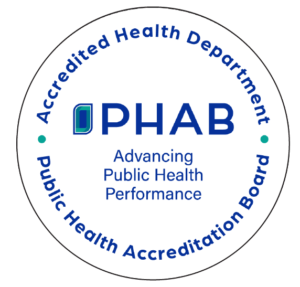What is mumps?
Mumps is an acute illness caused by the mumps virus.
What are the symptoms of mumps?
The most common symptoms are fever, headache, muscle aches, tiredness, loss of appetite, and swelling of the salivary glands (found on the head below the ears). About one-third of infected people do not have symptoms.
How is mumps spread?
Mumps is spread by mucous or droplets from the nose or throat of an infected person, usually when a person coughs or sneezes. The virus can also be spread if someone who is sick touches items without washing their hands, and someone else touches the same item and then rubs their eyes, mouth, or nose. Mumps can be spread 3 days before a person has symptoms of the mumps until 9 days after onset.
Who gets mumps?
Anyone who has not previously had the mumps or been vaccinated can get the mumps. Mumps usually occurs in children between the ages of 5 and 15. Mumps is more common during winter and spring. The greatest risk of infection occurs among older children.
How soon after infection do symptoms occur?
The incubation time (period from when a person is exposed to the virus to the start of symptoms) is usually 16 to 18 days, although it may vary from 12 to 25 days.
What other complications (problems caused by mumps) can be associated with mumps?
Severe complications are rare. However, mumps can cause meningitis (swelling of the covering of the brain and spinal cord), encephalitis (swelling of the brain), deafness; and in men, swelling of testicles (male sexual glands). Mumps can also cause a miscarriage (death of a baby that is still developing) if a woman gets mumps during the first three months of pregnancy.
Does past infection with mumps make a person immune?
Yes. Immunity is usually permanent after getting the disease.
Is there a vaccine for mumps?
Yes. Mumps vaccine is given on or after a child’s first birthday, and is usually administered in combination with measles and rubella vaccine. The MMR (measles, mumps, rubella) vaccine is highly effective and usually produces lifelong immunity against mumps.
What is the treatment for mumps?
If you have symptoms of the mumps, call your doctor so they can tell you for sure if you have it. They will tell you what to take for pain and swelling.
How can I keep from getting mumps?
Receiving the mumps vaccine (usually MMR vaccine) is the best way to prevent mumps. One thing people can do to prevent mumps, (and other infections) is to wash hands well with soap/water, and to teach children to wash their hands too. Eating utensils should not be shared, and surfaces that are frequently touched (toys, doorknobs, tables, counters, etc.) should also be regularly cleaned with soap and water. Children with mumps should not attend school for 9 days after the start of swelling.

